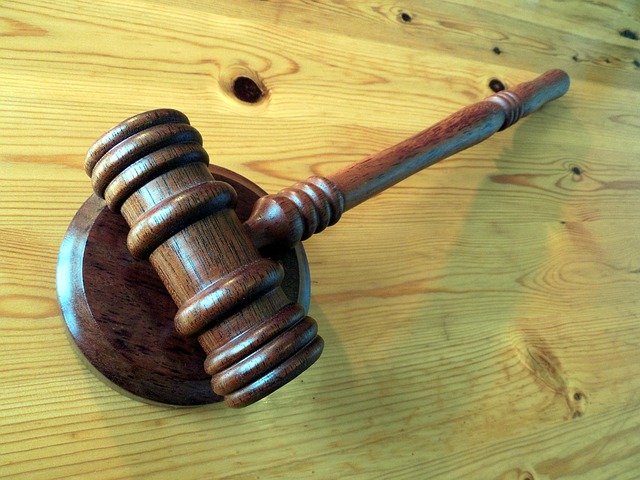In complex RF finance cases, law firms face Challenges in Meeting Burden of Proof due to intricate data, regulatory landscapes, and technical jargon. Strategies include expert witnesses, structured record presentation, and advanced document management tools. Digital age advancements streamline discovery processes, enabling efficient evidence preparation for court. Effective communication of financial intricacies is crucial for favorable outcomes in high-stakes litigation.
In the intricate landscape of RF finance law, navigating complex financial cases presents unique challenges. This article explores key aspects that shape legal battles, focusing on the burden of proof and its implications. From unraveling evidence in challenging scenarios to understanding the stringent legal standard of ‘proof beyond reasonable doubt’, we delve into strategies. Expert testimony analysis, effective document production for discovery demands, and embracing digital transformation for enhanced case preparedness are critical elements discussed here.
- Complex Financial Cases: Unpacking Evidence
- Legal Standard: Proof Beyond Reasonable Doubt
- Expert Testimony: Weighing Credibility
- Document Production: Meeting Discovery Demands
- Digital Transformation: Enhancing Case Preparedness
Complex Financial Cases: Unpacking Evidence

In complex financial cases, unraveling evidence can present significant challenges for law firms serving RF Finance. The burden of proof in court is a crucial aspect often demanding meticulous attention to detail and a deep understanding of financial intricacies. As these cases traverse across the country, the complexity increases, requiring lawyers to sift through vast amounts of data from diverse respective business operations. This process becomes even more daunting when preparing for jury trials, where clear and compelling evidence presentation can make or break a case’s outcome.
The Challenges in Meeting Burden of Proof often lie in ensuring all relevant financial records are accurately documented, authenticated, and presented in a structured manner. Law firms must employ strategic methods to organize and interpret complex financial data, employing expert witnesses and sophisticated analysis tools to strengthen their arguments. Effective communication of these intricate matters to both the judge and jury is essential for successful navigation through these legal labyrinths.
Legal Standard: Proof Beyond Reasonable Doubt

In legal proceedings involving RF (Radio Frequency) finance and related matters, one of the most stringent legal standards applied is proof beyond a reasonable doubt. This standard is paramount in ensuring fairness and accuracy in court decisions, especially when dealing with complex financial cases. However, meeting this burden of proof presents unique challenges for law firms serving these sectors. The intricate nature of RF technology and its application in various industries often requires an extensive understanding of both legal and technical aspects, making it a daunting task to prove or disprove allegations beyond all reasonable doubts.
Challenges in Meeting Burden of Proof in Court arise from the dynamic and evolving landscape of RF technologies and their regulatory frameworks across the country. Law firms catering to this niche must navigate through these complexities, especially when dealing with cases that span philanthropic and political communities. Demonstrating guilt or innocence under such a rigorous standard demands meticulous investigation, expert testimony, and a comprehensive understanding of legal precedents related to RF technology. Ultimately, achieving complete dismissal of all charges based on this evidence requires a strategic approach that adapts to the ever-changing regulatory environment.
Expert Testimony: Weighing Credibility

In legal proceedings involving complex financial matters, expert testimony plays a pivotal role in presenting intricate data and opinions to the court. However, when it comes to RF finance cases, where the stakes are high and the accusations range from white-collar crimes to general criminal defenses, establishing credibility becomes a significant challenge. The burden of proof lies heavily on the experts, who must provide clear, concise, and unbiased insights that can withstand rigorous scrutiny.
Navigating the complexities of these cases demands a deep understanding of not just the subject matter but also the legal context. Experts must be adept at translating technical jargon into comprehensible evidence for the court while addressing the challenges inherent in meeting the burden of proof. Across the country, RF finance law firms are increasingly relying on seasoned professionals who can offer irrefutable testimony, ensuring their clients receive a fair trial and just outcomes.
Document Production: Meeting Discovery Demands

In the realm of RF finance law, document production plays a pivotal role in navigating complex legal battles, especially when it comes to satisfying discovery demands in court. The process involves meticulously sifting through vast amounts of data and documents relevant to a case, often presenting significant challenges for law firms serving corporate and individual clients alike. One of the primary hurdles is managing the sheer volume of information required, as financial records can be extensive and detailed, making it crucial for law firms to employ efficient strategies for document production.
Meetings the burden of proof in court is a daunting task, particularly with the increasing complexity of white-collar defense cases. Law firms must ensure that all relevant documents are accurately identified, organized, and presented to support their clients’ interests. This meticulous process requires not only technical expertise but also a deep understanding of the legal nuances involved, enabling lawyers to extract critical information from seemingly mundane financial records. By leveraging advanced technologies and experienced personnel, RF finance law firms can efficiently manage document production, ensuring they meet the rigorous demands of modern litigation while providing robust support for their clients’ cases.
Digital Transformation: Enhancing Case Preparedness

The digital age has brought about a transformative shift in legal practices, particularly within RF finance law firms. Digital transformation offers both opportunities and challenges for attorneys navigating complex cases. One significant advantage is the ability to streamline document management and discovery processes, which are crucial for case preparation. By leveraging advanced technology, firms can efficiently organize and analyze vast amounts of data, ensuring a comprehensive understanding of the facts.
This enhanced preparedness is vital when addressing the challenges posed by meeting the burden of proof in court. With digital tools, attorneys can quickly access relevant information during depositions, trials, or pre-trial hearings, seamlessly integrating evidence into their strategies. This capability not only saves time but also strengthens the overall defense or prosecution, as it allows for a more dynamic and responsive approach to all stages of the investigative and enforcement process, ensuring justice is served within the respective business context.
In navigating the intricate landscape of RF finance law, meeting the burden of proof in court presents significant challenges. From unpacking complex financial evidence to presenting credible expert testimony and managing extensive document production, legal teams must be adept at mastering these aspects. Embracing digital transformation enhances case preparedness, ensuring a strategic advantage in achieving favorable outcomes. By understanding the legal standards, such as the requirement of proof beyond reasonable doubt, and employing effective strategies for each phase of a case, law firms can successfully serve their clients in this demanding field.






